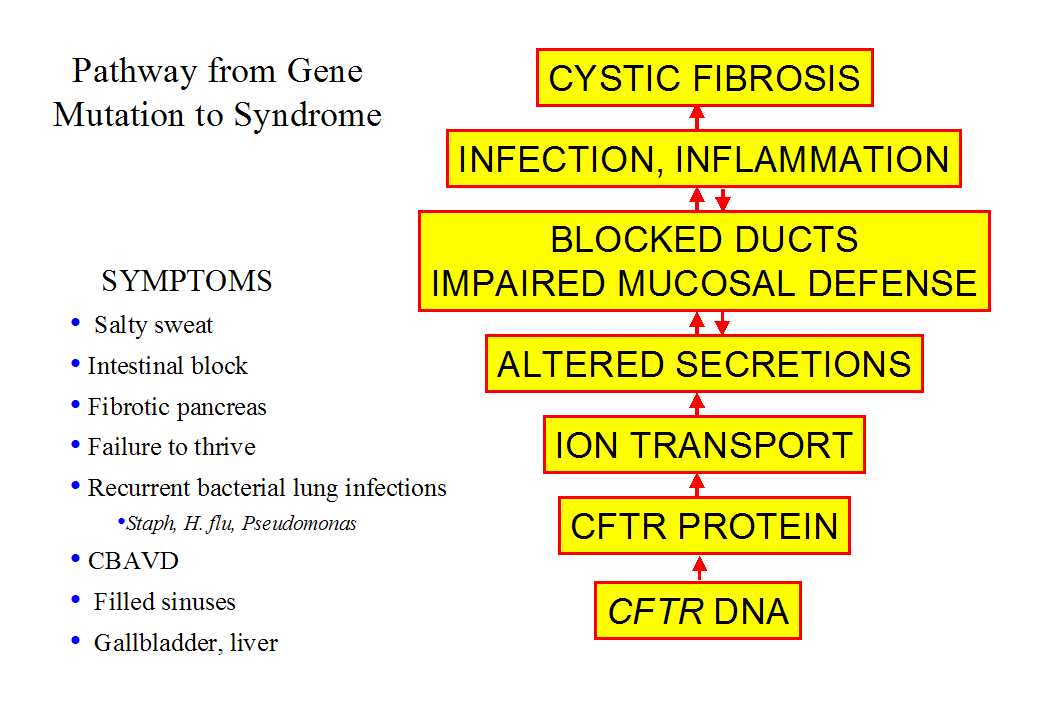Cystic Fibrosis Definition
The CFTR protein helps to produce mucus. Mucus is a complex mixture of
salts, water, sugars, and proteins that cleanses, lubricates, and
protects many passageways in the body, including those in the lungs and
pancreas. The role of the CFTR protein is to allow chloride ions to exit
the mucus-producing cells. When the chloride ions leave these cells,
water follows, thinning the mucus. In this way, the CFTR protein helps
to keep mucus from becoming thick and sluggish, thus allowing the mucus
to be moved steadily along the passageways to aid in cleansing.
In CF, the defective CFTR protein does not allow chloride ions out of mucus-producing cells. With less chloride leaving the cells, less water leaves, and mucus becomes thick and sticky. The mucus can no longer move freely through the passageways, and they become clogged. In the pancreas, clogged passageways prevent secretion of digestive enzymes into the intestine, causing serious impairment of digestion-especially the digestion of fat-which can lead to malnutrition. Mucus in the lungs may plug the airways, preventing good air exchange and, ultimately, leading to emphysema. The mucus is also a rich source of nutrients for bacteria, leading to frequent infections.
In CF, the defective CFTR protein does not allow chloride ions out of mucus-producing cells. With less chloride leaving the cells, less water leaves, and mucus becomes thick and sticky. The mucus can no longer move freely through the passageways, and they become clogged. In the pancreas, clogged passageways prevent secretion of digestive enzymes into the intestine, causing serious impairment of digestion-especially the digestion of fat-which can lead to malnutrition. Mucus in the lungs may plug the airways, preventing good air exchange and, ultimately, leading to emphysema. The mucus is also a rich source of nutrients for bacteria, leading to frequent infections.








No comments:
Post a Comment